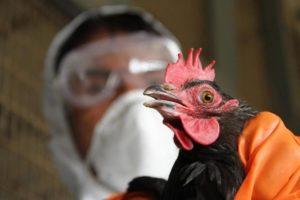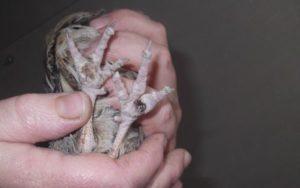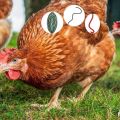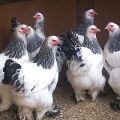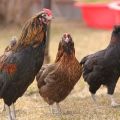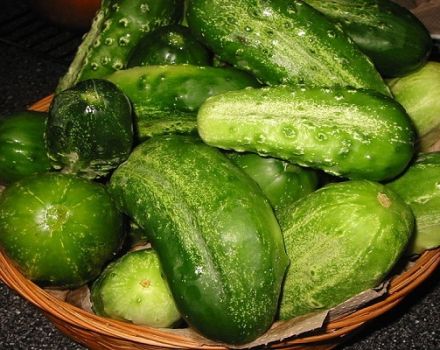Symptoms of plague in chickens and why the disease is dangerous, methods of treatment and prevention
Plague in domestic chickens is a dangerous and rapidly spreading disease that can kill an entire flock of birds. The infection spreads both through care products and through drinkers, feeders and other equipment. To save the bird, you need to take care of preventive measures in a timely manner, conduct inspections of the entire livestock.
Why is plague dangerous for chickens?
Plague in chickens causes swelling of the subcutaneous tissue on the head, chest and neck and is a septic disease. It can be transmitted in the following ways:
- excreta;
- blood;
- nasal fluid;
- feathers;
- eggs.
The disease spreads quickly and in a short period can lead to the death of the entire population of chickens.
Causes of diseases
The reason for the development of plague in chickens is a virus that enters the bloodstream and begins to actively multiply there. Through secretions, bacteria enter the environment and infect healthy birds, infecting all livestock.
Initially, the virus can enter the farm along with feed, bedding, and other purchased equipment.
Disease symptoms
The first symptoms of plague become noticeable after the incubation period is over and the virus has spread throughout the bird's body. Alarming symptoms are:
- depressed state;
- drowsiness;
- loss of appetite;
- weakness;
- prostration;
- throwing back the head up.
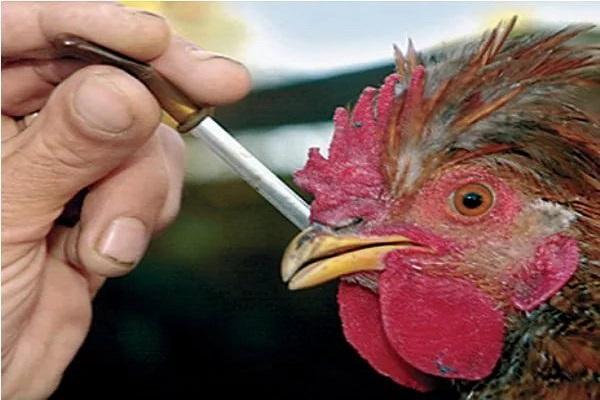
In chickens, the eyelids become swollen, feathers are disheveled, and profuse tearing is observed from the eyes. The bird sits in one place, almost does not move, the body temperature rises to 43 ° C. Over time, the scallop and earrings turn blue, the skin swells.
Methods for diagnosing pathology
In order to confirm the likelihood of infection of chickens with plague, it is imperative to conduct a laboratory analysis. Its basis is:
- negative sample of bacteriological analysis;
- the material for laboratory mammals must in no case be pathogenic;
- the spread of the disease among young chickens;
- infection of blood filters and internal organs.
If there is any suspicion that an immunological differentiation of the virus has occurred, then the bird that was previously vaccinated is artificially infected.
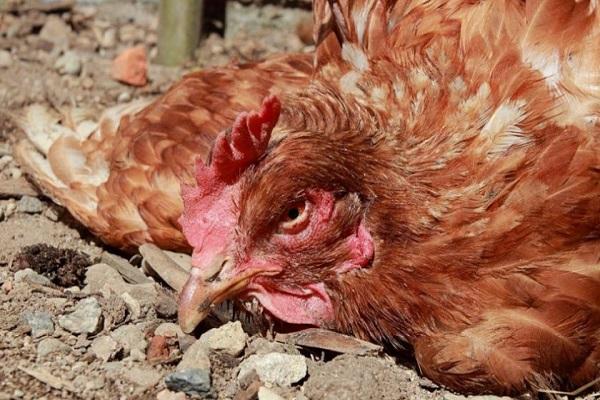
How to treat a disease in chickens?
The treatment of plague in chickens, even in modern conditions, is a big problem. An effective method of dealing with the disease has not yet been invented. If sick individuals were found in the chicken coop, then they should be immediately exterminated.
Some experts are trying to treat the plague with antibiotics.At first glance, it seems that chickens are recovering. However, in fact, the virus stops its activity and continues to exist inside the bird without showing any symptoms. A sick chicken turns into a carrier of infection and infects healthy fellows.
If sick chickens were found on the farm, then the livestock should be closed in the premises as soon as possible. Remove all used inventory there and immediately declare quarantine. Dead chicken carcasses should be burned. Individuals suspected of having plague are slaughtered. Their meat can be consumed only inside the farm and only after heat treatment at a temperature not lower than 100 ° C for 20 minutes. Sick chickens are slaughtered at specially designated sites.
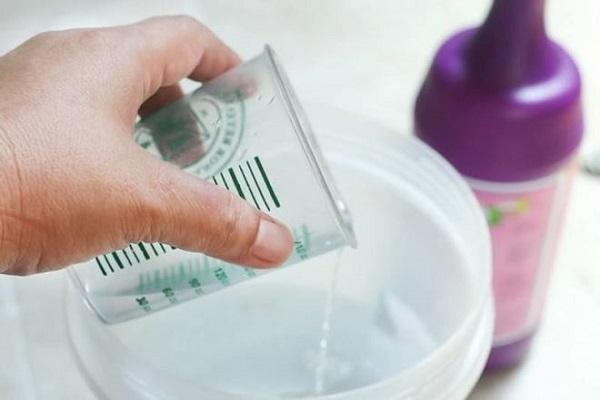
All tools and premises, as well as the slaughterhouse where sick birds were located, their walking areas, feeders and drinkers are sent for thorough disinfection. To do this, use the following drugs:
- 10% solution of chloride lime;
- 3% formaldehyde solution;
- 4% alkaline solution;
- 20% slaked lime solution.
Before starting work, the grass in the field is mowed, dried and burned. Within 90 days after disinfection, the premises, inventory and walking areas cannot be used for their intended purpose. All manure, feed remains together with feeders, as well as perches should be urgently burned. During quarantine (30 days), live chickens must not be taken out of the farm. Eggs collected a couple of weeks before the first signs of the disease are detected should be boiled for at least 10 minutes before eating. at a temperature not lower than 100 ° С.

Is there a danger to people?
Plague in chickens poses a certain danger to humans. Eating raw eggs from sick birds is unacceptable. If there is any suspicion of an infection in the chicken coop, the meat is thoroughly sanitized and heat treated.
Bacteria entering the human body weaken the immune system and can cause diarrhea, weakness and other disorders of the body.
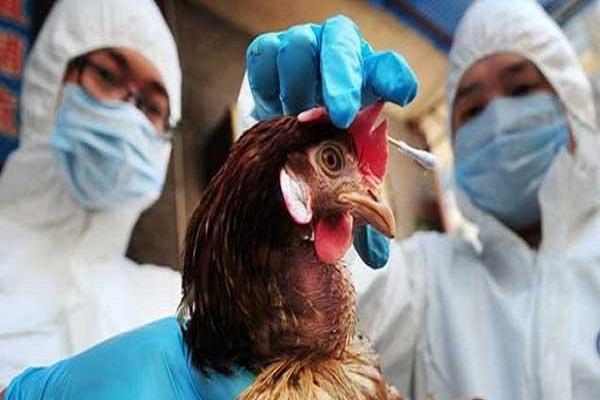
Preventive methods
Effective and timely preventive measures will help avoid trouble and keep chickens healthy. These include:
- periodic selective diagnostics;
- constant control over the relocation of chickens between neighboring farms;
- control over the purity of the drugs used and the composition of feed;
- constant monitoring of infectious activity in nearby regions;
- regular vaccination.
If for some reason the farmer could not or did not want to devote time to the prevention of plague in chickens, then he risks not only losing his meat and flying poultry, but also allowing the spread of the dangerous virus to other farms nearby. Such activity already entails the imposition of administrative penalties. The conclusion about the vaccination must be in the hands of the farmer.
